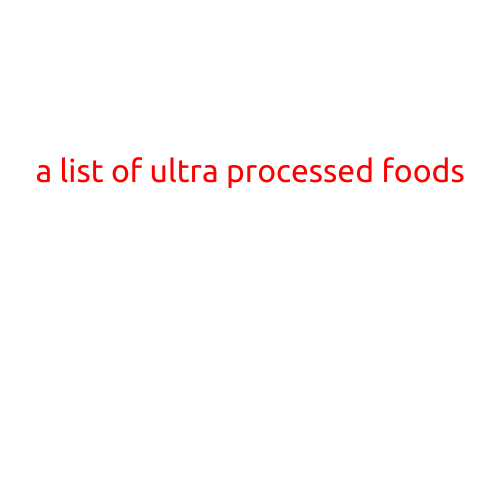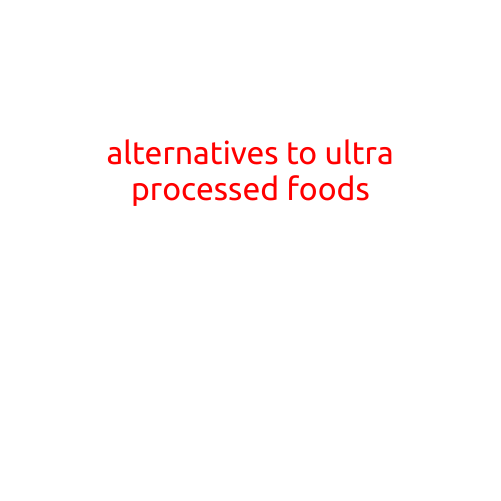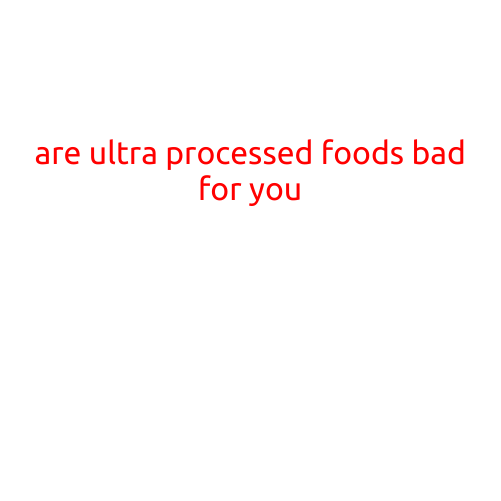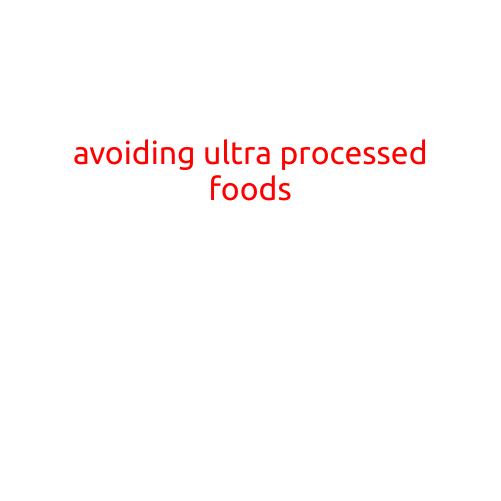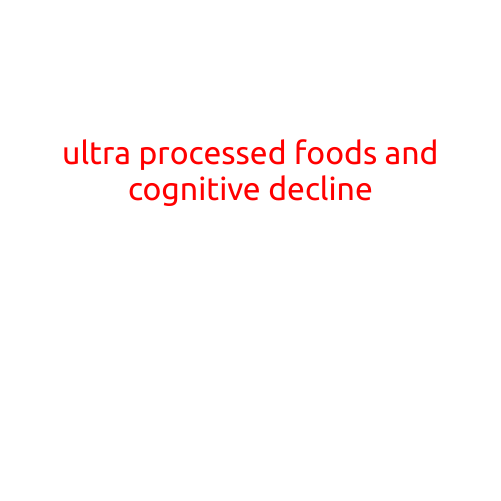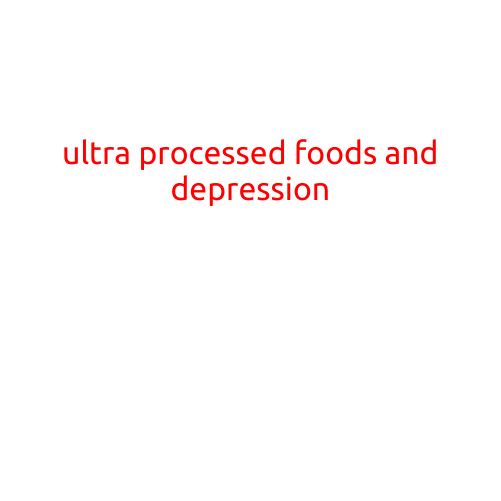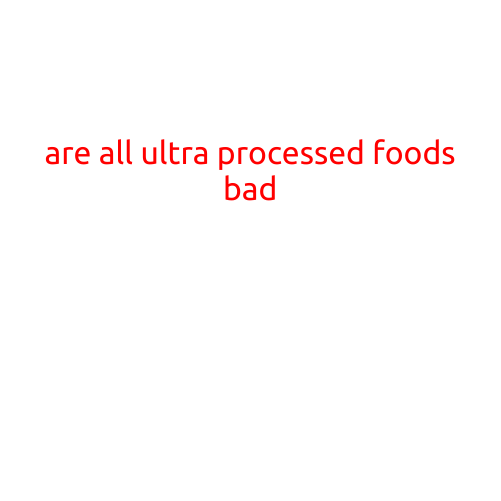
Are All Ultra-Processed Foods Bad?
In recent years, the debate surrounding ultra-processed foods has intensified. With the rise of convenience foods and ready-to-consume products, many experts have sounded the alarm about the potential health risks associated with an ultra-processed diet. But is it really necessary to avoid all ultra-processed foods, or is there a middle ground?
What are Ultra-Processed Foods?
To begin with, let’s define what ultra-processed foods are. According to the NOVA classification system, ultra-processed foods are industrial foods that have undergone significant changes in terms of composition and nutritional content. Examples of ultra-processed foods include packaged snacks, sugary drinks, frozen meals, and many processed meats.
The Concerns Surrounding Ultra-Processed Foods
Research has linked ultra-processed food consumption to a range of health problems, including:
- Increased risk of chronic diseases: A diet rich in ultra-processed foods has been linked to an increased risk of obesity, type 2 diabetes, cardiovascular disease, and certain types of cancer.
- Nutrient deficiencies: Ultra-processed foods often lack essential vitamins, minerals, and fiber, leading to a state of nutritional imbalance.
- Gut health issues: Ultra-processed foods can disrupt the balance of gut bacteria, contributing to digestive issues and inflammation.
- Negative impact on the environment: The production and disposal of ultra-processed foods contribute significantly to greenhouse gas emissions and waste management issues.
But, Are All Ultra-Processed Foods the Same?
Not all ultra-processed foods are created equal. While some may be worse for you than others, there are certain types of ultra-processed foods that can be part of a healthy diet when consumed in moderation.
For example:
- Canned beans: While they are still a processed food, canned beans can be a convenient and healthy source of protein, fiber, and vitamins.
- Whole grain bread: Freshly baked whole grain bread, made with minimal processing, can be a healthier option than refined white bread.
- Lean protein sources: Many processed lean protein sources, such as chicken breast or turkey sausage, can be a healthier choice than traditional meat products.
Tips for Navigating the World of Ultra-Processed Foods
So, how can you minimize the negative effects of ultra-processed foods in your diet? Here are some tips:
- Read food labels: Know what you’re putting in your body by reading food labels and avoiding products with artificial additives, preservatives, and excessive sugar.
- Choose whole foods: Prioritize whole, minimally processed foods, such as fruits, vegetables, whole grains, lean proteins, and healthy fats.
- Cook from scratch: Cooking meals from scratch allows you to control the ingredients and processing methods, reducing the risk of nutrient deficiencies and gut health issues.
- Indulge in moderation: Enjoy ultra-processed foods in moderation, as an occasional treat rather than a regular staple.
Conclusion
While ultra-processed foods do pose potential health risks, it’s not necessary to avoid them entirely. By understanding the nuances of different ultra-processed foods and making informed choices, you can minimize the negative effects and maintain a balanced diet. Remember to prioritize whole foods, read food labels, and cook from scratch whenever possible.
